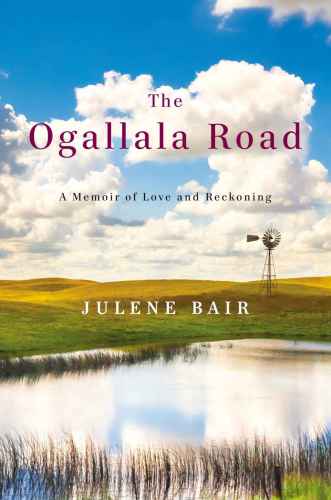
The Ogallala Road
A Story of Love, Family, and the Fight to Keep the Great Plains from Running Dry
کتاب های مرتبط
- اطلاعات
- نقد و بررسی
- دیدگاه کاربران
نقد و بررسی

December 2, 2013
Nostalgia for the family farm in arid western Kansas vies with a deep consternation about the draining of the Ogallala Aquifer by crop irrigation in Bair’s (One Degree West) ardent, deliberative narrative. The work returns to fateful events in the year preceding the reluctant, yet seemingly inevitable, selling of Bair’s parents’ farm in 2006: then in her early 50s, Bair was raising her teenaged son, Jake, by herself in Laramie, Wyo., where she had quit her job at the university in order to write fulltime. She meets a sexy, caring Kansas rancher, Ward Allbright, an event that seemed marvelously providential despite his conservative views; the two begin to plan a future together, taking over the Bairs’ 3,500-acre dryland wheat and irrigated farm. The farm was largely being managed by her Bair’s brother, Bruce, and required vast, unsustainable quantities of water from the fast-draining Ogallala Aquifer (she estimated that more than 4,000 gallons of water was needed for every bushel of corn harvested). Farmers used this sole source of water without any sense of its being finite. After researching geological maps that showed its perilous depletion, Bair began to speak publicly and write about the dire situation. Bair’s thoughtful work underscores the dilemma now facing farmers on the High Plains.

January 15, 2014
A gifted writer describes the ebbs and flows of the arc of a romantic relationship while exploring her own bond to the American heartland. Bair (One Degree West: Reflections of a Plainsdaughter, 2000) explores her inner emotional life in this spare memoir that eventually becomes equal parts Robert James Waller romance novel, William Least Heat-Moon road show and agricultural expose memorializing the painful legacy of the independent American farmer. The author begins with her memories of a childhood on the farm in remote Kansas. Returning home after years in metropolitan San Francisco, Bair felt like a stranger in a strange land until she met Ward, a laconic, closeted intellectual rancher who ignited a fire in this single mother. In subsequent sections, we experience Bair's combative relationship with her son, Jake, to whom Ward represented a potential last chance at a father figure. Coming home, Bair worked with her family to preserve the large industrial farm that had become their family legacy but was faced with the harsh reality that their livelihood contributes to the rapid depletion of the Ogallala aquifer, which supplies over a quarter of America's irrigated land with water--not to mention the fact that the farm's fate was being decided on the eve of the ethanol boom. Bair offers an unblinking look at a woman's place in a patriarchal culture. "A father for Jake, a farmer for Dad," the author laments. "That's why the time I'd spend helping Dad during Jake's toddlerhood had seemed so healing. I had proven I could be that farmer if I wanted to, and Dad had accepted that I could. I rejected all those sexist implications, asserted my own truths, became equal in my own right, but look at me now." A lyrical but somewhat distracted narrative that can't decide whether it's a love story, a meditation on our lives on this planet or an attempt to follow Upton Sinclair into the depths.
COPYRIGHT(2014) Kirkus Reviews, ALL RIGHTS RESERVED.

Starred review from March 1, 2014
In this thoughtful consideration of life at a crossroads, Bair tackles questions about single parenthood, romance, and the monumental task of determining the future of the family farm. Bair grew up steeped deeply in Kansas farming, but her life has taken her far away in more ways than one. A woman facing midlife alone with a teenage son, she finds herself falling into an unexpected love affair at the same time her father's death forces changes to the family farm. In the midst of the more prosaic tasks of land management, she recounts her long concernswith the demands farming places on the land, especially the Ogallala aquifer. Threaded throughout each chapter are her travels along the Ogallala's path as she puzzles out the changes the water table has suffered and challenges old agricultural traditions that continue to persist in defiance of logic. Bair's measured approach to her family's ultimate decision about the farm provides readers in a nonrural setting with a thoughtful look into America's heartland. Book groups should find much to discuss here, from love to family to the big questions we all must face about how we live now.(Reprinted with permission of Booklist, copyright 2014, American Library Association.)

























دیدگاه کاربران